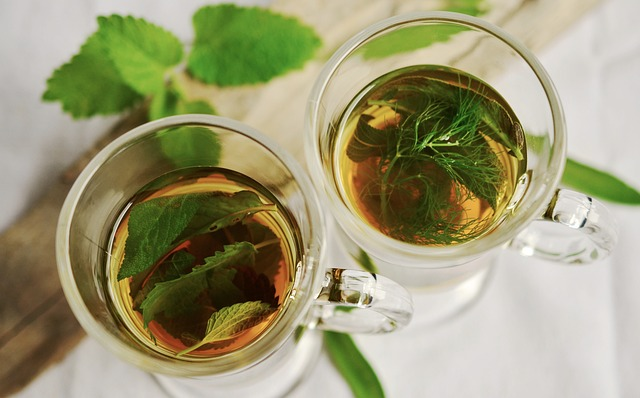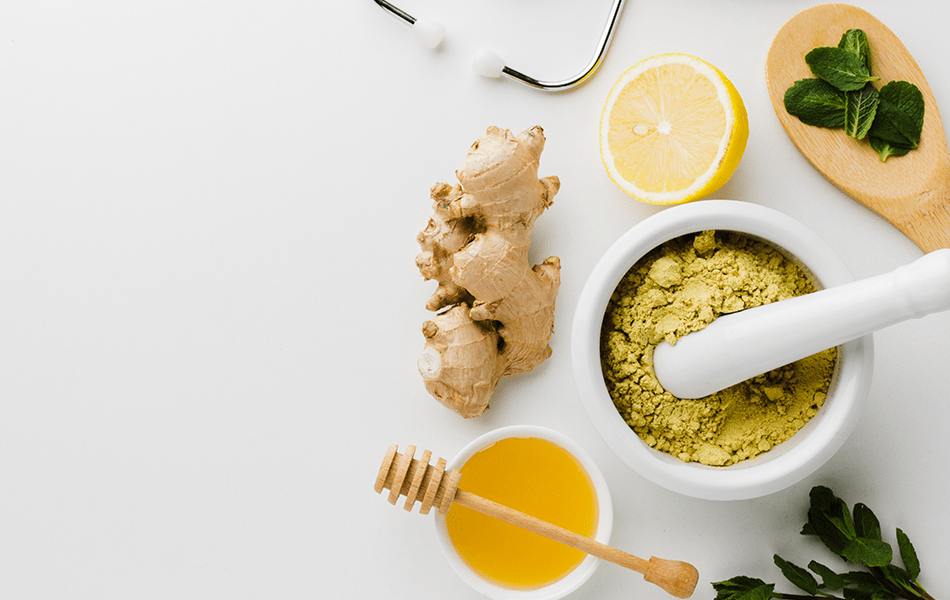Jo Koy, a famous Filipino-American comedian, once made a joke about his Filipino mom giving him and his siblings home remedies for all their sickness. You may agree and think that this is probably a common experience for all children who grew up with a Filipino mother. Everything can be cured at home- from using Vicks Vapor Rub to making a hot drink out of Lagundi leaves. Filipino moms have a strong belief in the healing power of herbs based on their cultural upbringing. They trust in the effectiveness and safety of herbal medicines because they have witnessed positive results from their own experiences or the experiences of their family and community members. The familiarity of herbal medicines provides a sense of comfort and security when caring for their family’s health. Now that you are an adult you may start to wonder, are these home remedies really effective?
In the pursuit of holistic well-being, many individuals are turning to alternative and natural approaches to healthcare. Among these approaches, herbal remedies hold a special place, particularly in the context of traditional medicine in the Philippines. Incorporating herbal remedies into home health practices offers a unique opportunity to embrace nature’s healing power and complement existing treatment plans.
Philippine Medicinal Plants

Herbal medicine has a long and rich history in the Philippines, with traditional healers relying on the abundant medicinal plant resources found in the country. The use of medicinal plants for various ailments has been passed down through generations, forming an integral part of Philippine culture and traditional medicine. As the world recognizes the importance of natural and applied sciences in healthcare, herbal medicine in the Philippines continues to gain attention for its potential therapeutic benefits.
The Philippines boasts a diverse array of plant species known for their medicinal properties. These plants, often referred to as Philippine medicinal plants, offer a wide range of herbal medicines that have been used to treat various health conditions. From the leaves, roots, and bark to the plant extracts, each part of these herbal plants holds medicinal importance.
Benefits of Herbal Medicines
Herbal medicine offers numerous health benefits and is often preferred by many due to its natural properties. The bioactive compounds present in medicinal plants have been found to possess anti-inflammatory, wound healing, and anti-fungal properties. These herbal remedies can effectively treat wounds, insect bites, and even common ailments like gas pain and body pain.
Moreover, medicinal plants have been used in folk medicine since ancient times and have been clinically proven to alleviate various medical conditions. The scientific basis behind their efficacy lies in the presence of active compounds that interact with the body’s systems, providing relief and promoting overall well-being.
Below is a rundown of common health conditions and ailments where herbal remedies can be beneficial:
- Digestive health
- Insomnia and sleep disorders
- Respiratory health
- Skin conditions
- Joint pain and inflammation
- Menstrual pain
- Headaches and migraines
- Stress and anxiety management
Read also: 5 Tips for a Quick Mental Health Break at Home
Integration of Herbal Medicine and Modern Healthcare
The World Health Organization recognizes the value of traditional medicine and encourages its integration into modern healthcare systems. In the Philippines, the government has enacted the Traditional and Alternative Medicine Act (TAMA) of 1997, which supports the practice and development of traditional medicine alongside Western medicine. This acknowledgment reflects the significant role that traditional knowledge plays in addressing the healthcare needs of the Filipino population.
Moreover, incorporating herbal remedies into home health practices empowers individuals to take an active role in their own healthcare. It encourages self-awareness, self-education, and self-empowerment in managing one’s health. While Western medicines have their place in treating specific medical conditions, herbal medicines offer an alternative for individuals seeking natural solutions to their health problems. From addressing gastrointestinal issues to managing chronic conditions like heart disease, herbal remedies can complement existing treatment plans and promote overall well-being.
Here is a list of Philippine medicinal plants and their common uses as home remedies:
1) Lagundi (Vitex negundo)
Lagundi leaves are commonly used to alleviate cough and asthma symptoms. Boil the leaves and drink the decoction or make a poultice for external application.
2) Sambong (Blumea balsamifera)
Sambong has been traditionally used for its diuretic properties, making it an effective remedy for kidney stones and urinary tract infections. Scientific research has also revealed its potential in treating other medical conditions such as diabetes mellitus, bacterial infections, and skin diseases. Prepare a tea by boiling the leaves and drink it regularly.
3) Ampalaya (Momordica charantia)
Ampalaya leaves, fruit, and seeds are used to help manage diabetes by regulating blood sugar levels. Prepare a tea from the leaves or consume the fruit and seeds regularly.
4) Bawang (Allium sativum)
Garlic cloves have antimicrobial and immune-boosting properties. Crush garlic and consume it raw or add it to food for its medicinal benefits.
5) Tanglad (Cymbopogon citratus)
Tanglad, or lemongrass, is used for its calming and digestive properties. Make a tea from the leaves by steeping them in hot water.
6) Bayabas (Psidium guajava)
Bayabas leaves are used as an antiseptic and to relieve diarrhea. Boil the leaves and drink the decoction or apply it topically to wounds.
7) Niyog (Cocos nucifera)
Coconut oil is used for its moisturizing and antibacterial properties. Apply coconut oil topically to the skin for hydration and as a natural remedy for certain skin conditions.
Future Outlook
While traditional knowledge forms the basis of herbal medicine, further pharmacological investigations are necessary to fully understand the potential of these natural products. Scientific research plays a vital role in discovering new drugs and exploring the pharmacological activities of medicinal plants. By conducting studies on plant parts, such as leaf extracts or decoctions, researchers can uncover their medicinal value and develop evidence-based treatments.
Conservation of medicinal plants is of utmost importance as these valuable resources contribute to the biological diversity of the Philippines. The Philippine government, in collaboration with various organizations, emphasizes the need for sustainable practices in harvesting and cultivating medicinal plants. By protecting these natural resources, future generations can continue to benefit from their medicinal properties.
As more countries recognize the potential of herbal medicine, the Philippines stands as a tropical country rich in medicinal plants. The scientific names of these plants may vary, but their traditional and medicinal values remain constant. Further study and exploration of other species and their potential pharmacological activities are necessary to unlock their full potential.
Conclusion
Incorporating herbal remedies into home health practices offers a holistic approach to healthcare and self-care. By embracing nature’s remedies, individuals can complement existing treatment plans and empower themselves to take an active role in their well-being. However, it is crucial to seek guidance from healthcare professionals to ensure the safe and appropriate integration of herbal remedies. From digestive health to stress management and skin conditions, herbal remedies provide a natural and effective option for promoting health and vitality. Embracing herbal remedies as part of home health practices allows individuals to tap into the healing power of nature and discover a path to holistic wellness.
Are you searching for a property that values your holistic well-being? Look no further! While Bria Homes strives to provide Filipino families with an affordable home and a secure neighborhood, it also recognizes that a healthy body is the key to a healthy home. So, what are you waiting for? Take a peek among the innovative properties today by visiting the official BRIA Homes website.
Written by: MC Sanchez





